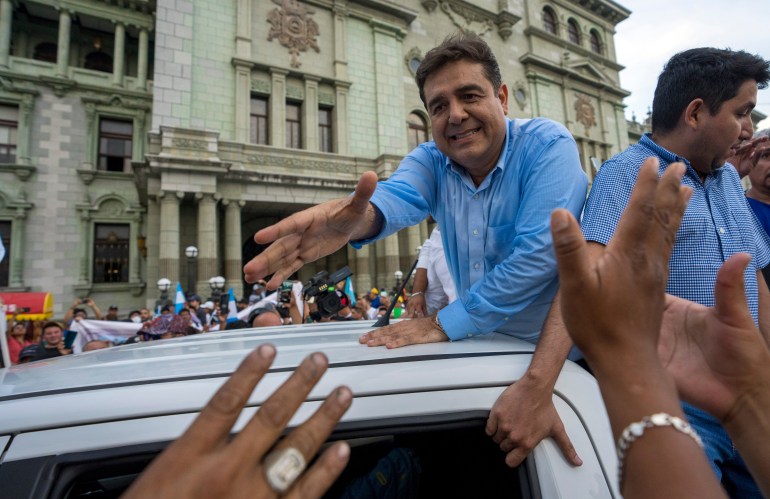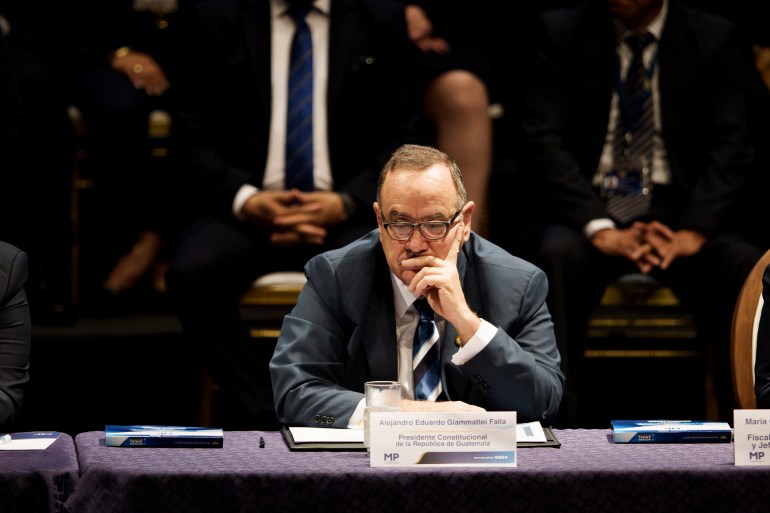Guatemala’s Constitutional Court has decided to end the presidential campaign of dark horse candidate Carlos Pineda, with just one month left before voting begins.
Pineda, a conservative businessman with a strong following on social media, appealed to the country’s highest court after a judge suspended his candidacy a week ago, for not complying with the laws of national elections.
But the Constitutional Court on Friday upheld the lower court’s ruling, finding that Pineda failed to collect signatures from party delegates and file the necessary financial reports, which are required in the nomination process.
The decision sparked a fiery response from Pineda, who recently emerged as the frontrunner in an election poll.
“Corruption won, Guatemala lost,” Pineda wrote in a social media post.
On the other hand, he said that the Constitutional Court endorsed the “electoral fraud” with its ruling: “We are left without democracy!!”

Pineda is the third candidate to be disqualified from the presidency, with the first round of voting scheduled for June 25.
His disqualification follows that of fellow conservative Roberto Arzú on Thursday.
Earlier this year, a left-leaning Indigenous candidate, Thelma Cabrera, was also barred from the race after her running mate, former human rights official Jordán Rodas, was deemed ineligible.
Rodas allegedly failed to produce a letter certifying that he had no legal proceedings pending against him, leading the court to rule that his entire ticket – including Cabrera – could not be registered for the election.
Critics denounced the disqualifications as politically motivated, intended to remove candidates seen as unfavorable to the government establishment.
On Twitter, Juan Pappier, acting deputy director for the Americas at Human Rights Watch, criticized Friday’s ruling as a “clear instrumentalization of the judiciary to guarantee ‘electoral’ results”.

The administration of outgoing President Alejandro Giammattei has been accused of suppressing dissent in Guatemala.
Earlier this month, ElPeriodico, a 27-year-old investigative news outlet, said it was “forced” to stop daily publications after “persecution” against its staff “intensified”. Its founder, José Rubén Zamora, was previously arrested on charges of money laundering and blackmail.
And under Giammattei, an estimated 30 legal experts and anti-corruption officials — including judges and lawyers — fled the country after his administration resumed investigations against them.
Many of these figures have links to the now closed International Commission against Impunity in Guatemala (CICIG), an independent organization supported by the United Nations to root out corruption in the country.
Those who remain face possible arrest and prosecution. On Friday, Guatemalan police arrested Stuardo Campos, a prosecutor focused on crimes against migrants who previously worked on anti-corruption cases.
The far-right group Foundation Against Terrorism filed a complaint against Campos claiming he abused his authority.
“This complaint is not true,” Campos said in response. “I know that my work as an anti-corruption prosecutor has caused me anger in many sectors.”
Giammattei is not eligible for reelection in the June race, but his conservative party, Vamos, has a candidate competing: Manuel Conde. No political party in Guatemala, however, has succeeded in winning consecutive presidential elections.
On Wednesday, days before his disqualification, Pineda topped the presidential candidates in the poll ranking. He is leading with 22-percent support among voters. On his heels is former First Lady Sandra Torres with 20 percent, followed by Zury Ríos – the daughter of former President Efraín Ríos Montt, who is accused of genocide – and diplomat Edmond Mulet.
About 30 political parties are expected to compete. Pineda represents the Prosperidad Ciudadana — or “Citizen Prosperity” — party.
